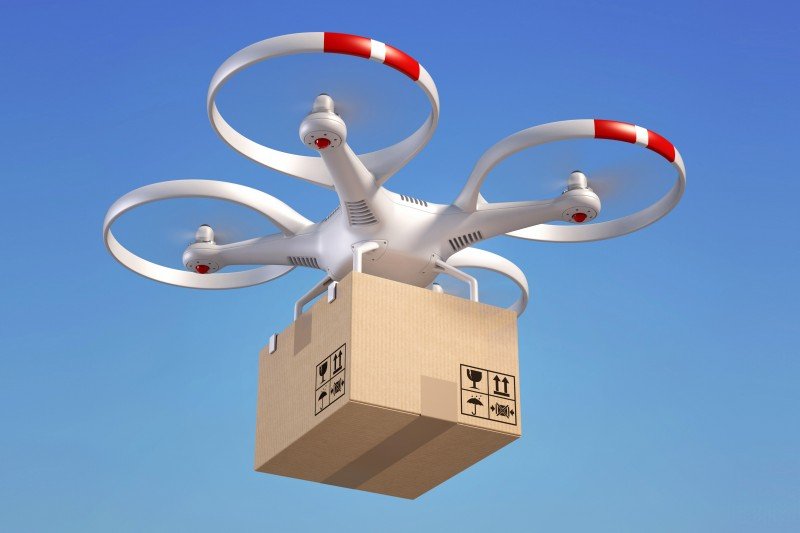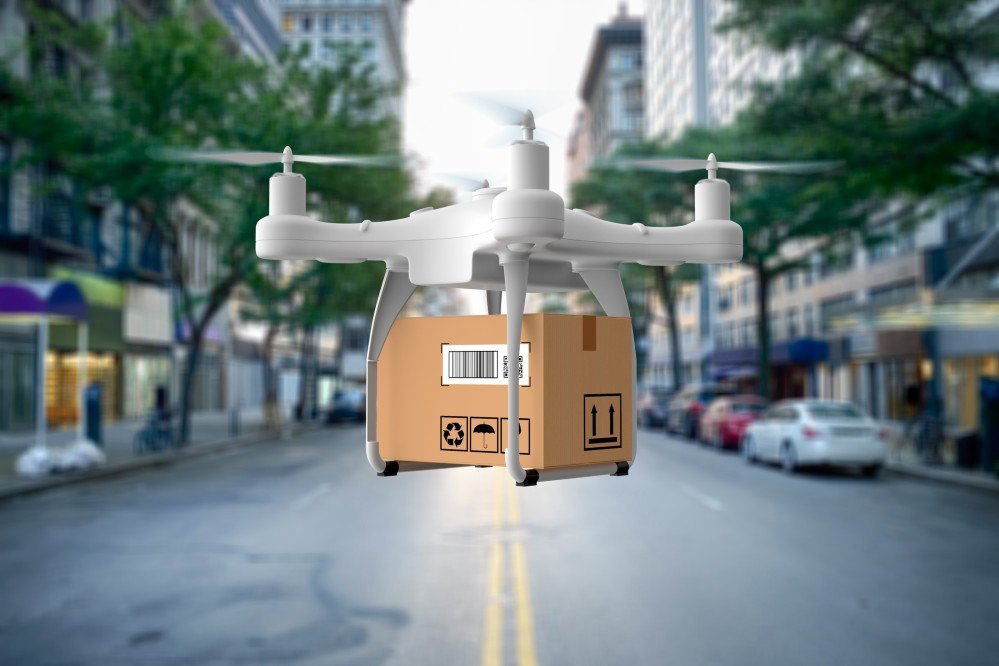In a bold and inspiring step towards next-generation logistics, an Omani firm is preparing to launch drone-based cargo delivery services before the year ends. This move could mark a defining moment for the Sultanate’s technological ambitions, transforming traditional freight networks with aerial agility, speed, and sustainability.
With drone technology evolving rapidly, this initiative aims to tap into its potential to revolutionise the delivery and logistics landscape—not just in Oman, but across the entire Gulf region. By eliminating traffic bottlenecks, slashing delivery times, and offering an eco-friendly alternative to road-based transport, the project aligns perfectly with Oman’s long-term vision for smarter, greener growth.
A Timely Innovation With Transformational Promise
Drone deliveries are no longer just a futuristic concept—they are fast becoming a present-day solution to long-standing logistics challenges. For Oman, a country with diverse geography spanning mountains, deserts, and coastal terrain, the application of unmanned aerial vehicles (UAVs) offers immense potential.

The Omani firm behind this effort envisions a network where cargo—ranging from medical supplies and e-commerce goods to industrial components—can be flown swiftly between cities, towns, and even the most isolated communities. This leap is expected to enhance efficiency, support emergency services, and stimulate regional development.
What’s Coming: The Drone Delivery Rollout Plan
The company has outlined an ambitious plan to launch its drone cargo operations by the final quarter of this year. Preparations are already underway, with infrastructure development and flight testing in motion.
Key elements of the rollout include:
- Strategic Launch Points: Initial flights are expected to take off from a facility near Muscat International Airport, enabling both short-range and extended cargo routes.
- Specialised Drones: A fleet of advanced delivery drones will be deployed, capable of handling a variety of payload sizes, with some drones optimised for light packages and others engineered for heavier commercial cargo.
- Pilot Routes: Early-stage flights will connect urban hubs with remote regions, offering a reliable solution to Oman’s last-mile delivery hurdles. Long-term plans involve expanding the network across neighbouring countries.
- Performance Tracking: The drones will be monitored for speed, accuracy, safety, and efficiency. These metrics will guide future expansions and system refinements.
Reimagining Logistics With Real-World Benefits

The drone-based delivery model isn’t just a tech showpiece—it’s a strategic solution with wide-reaching benefits. Here’s how it stands to positively impact Oman’s economy, businesses, and everyday citizens:
- Speed and Efficiency: Drones are significantly faster than road vehicles, especially in congested urban areas or hard-to-access rural zones. Packages could be delivered in minutes rather than hours.
- Cost Reduction: Operating a fleet of drones is potentially more cost-effective than maintaining large ground fleets, particularly over time with rising fuel and labor costs.
- Eco-Friendly Operations: Electric-powered drones produce far fewer emissions than traditional delivery vehicles, helping Oman move closer to its sustainability goals.
- Enhanced Access: Medical supplies and essential goods can be delivered to rural or disaster-hit areas where roads may be blocked or inadequate.
- Business Enablement: Small and medium-sized enterprises (SMEs) in Oman can benefit from quicker delivery cycles, boosting their competitiveness in the regional market.
Empowering Oman’s Tech Ecosystem
This project reflects more than just a business initiative—it’s part of a broader national effort to empower Oman’s tech ecosystem. The firm is reportedly collaborating with tech startups, drone specialists, and logistics companies to create a robust framework for innovation.
With the establishment of training academies, testing labs, and regulatory support, Oman is building a strong foundation to support drone-based services not only in cargo but also in areas such as surveillance, agriculture, and infrastructure monitoring.
By launching drone delivery services, the firm is opening up new career paths in drone operation, data analytics, logistics management, and engineering—fostering a new wave of talent aligned with the Fourth Industrial Revolution.
Regional Ambitions With Global Implications
Oman’s geographic position gives it a natural advantage as a logistics hub between Asia, Africa, and Europe. By introducing drones into its cargo operations, the country signals to the world that it is ready to compete on innovation, speed, and service quality.
While neighbouring countries like the UAE and Saudi Arabia are also investing in drone tech, Oman’s strategy is notable for its focus on inclusivity and community impact. This isn’t just about commerce—it’s about national resilience, preparedness, and progress.
With time, the drone delivery infrastructure in Oman could serve as a model for other countries looking to modernise their logistics systems, especially those with similar geographic and demographic challenges.
Backlinks and Related Developments
The upcoming drone launch ties into several major developments in Oman’s tech and logistics sectors, including:
- The creation of a drone innovation hub at Muscat International Airport, which includes a research lab, training academy, and testing facilities.
- Strategic partnerships with leading drone manufacturers and logistics firms for knowledge exchange, hardware development, and pilot route planning.
- National investments in smart infrastructure, including AI-powered logistics platforms and IoT-enabled cargo tracking solutions.
- Ongoing regulatory reforms to support drone operations in both civilian and commercial contexts, balancing innovation with public safety.
These interconnected efforts are designed to position Oman as a pioneer in drone logistics and a serious contender in the global race for aerial delivery dominance.
What’s Next: Future Horizons and Public Expectations

As anticipation builds for the year-end launch, the public and private sectors are watching closely. Questions being asked include:
- Will drone deliveries eventually become available to individual consumers?
- How will safety, privacy, and noise be managed in residential areas?
- Could drone cargo eventually extend to international shipping routes?
- What role will autonomous navigation and AI play in future drone fleets?
While the firm hasn’t confirmed all these details yet, the early signs point to a scalable, adaptive platform that could evolve rapidly with feedback and real-world performance data.
For now, the focus remains on execution: making sure the first wave of drone cargo deliveries runs smoothly, meets performance benchmarks, and earns public trust.
Final Word: Oman Rising With Wings of Innovation
The decision to embrace drone-based cargo delivery is more than a logistical upgrade—it’s a bold statement of intent. Oman is declaring its readiness to lead in innovation, to push boundaries, and to embrace the future not just as a participant, but as a pioneer.
If successful, this initiative could redefine what’s possible for delivery systems—not just in the Sultanate, but globally. And as the drones take to the skies later this year, they’ll carry more than just cargo. They’ll carry the hopes of a nation flying boldly into tomorrow.
Do follow UAE Stories on Instagram
Read More: Qatar Financial Centre Unveils Game‑Changing Tokenized Carbon Exchange













